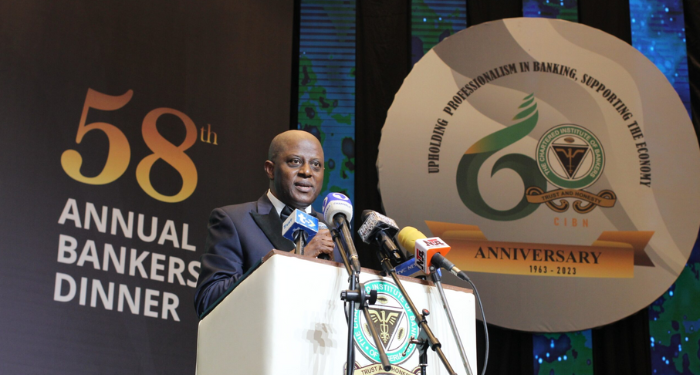Nigeria’s forex reserves have risen to $34 billion according to the governor of Nigeria’s central bank, Olayemi Cardoso.
He stated this while delivering the communique at the end Monetary Policy Committee (MPC) meeting today and reiterated it while responding to questions from the press.
According to him, the increase in the gross foreign reserve in February was driven by the elevated crude oil prices, an increase in oil production, and reforms from the apex bank.
- He stated, “Gross external reserve stood at $34.51 billion on February 20th, 2024 compared with $32.23 billion at the end of January 2024.
- The improvement was driven by reforms in the foreign exchange market and an increase in oil production amongst others”
However, available official data during the MPC meeting stated that as of February 23rd, the external reserve position is $33.5 billion
The Governor of the CBN also hinted that Nigerians should expect an aggressive regulatory environment in the coming months as the bank moves to stabilize the forex market and execute its reforms.
Recommended reading: Naira stays above N1600 bandwidth at unofficial market as MPC meeting kicks off
What you should know
The rise in the nation’s foreign reserve comes as a surprise considering that in December, the foreign reserve dropped to its lowest in six years at $32.87 billion following the depreciation occasioned by the partial devaluation of the naira.
The most recent official data (February 23rd) on the day of the MPR also stated that we had $33.5 billion in external reserve.
Meanwhile, the IMF had projected the nation’s reserve could drop to $24 billion this year before rising to $38 billion as portfolio inflows pick up.
- In January, Nigeria’s crude oil production increased by 91,000 barrels to 1.427 million bpd compared to the 1.33 million barrels daily production recorded in December according to OPEC Monthly Oil Market Report (MOMR).
- However, the increase in oil production was below the budget benchmark of 1.78 million bpd for 2024.
- The CBN earlier this month had introduced a 50% limit on the amount of forex proceeds that International Oil Companies operating in Nigeria can immediately remit to their parent company abroad.
- The bank noted that IOCs will now be permitted to immediately repatriate 50% of their proceeds abroad, while the remaining 50% will be eligible for repatriation 90 days after the date of inflow.
The rationale for the move according to the bank is to avoid the negative impact such immediate repatriation has on liquidity in the Nigerian foreign exchange market.
Recommended reading: CBN to increase BDC minimum share capital to N2 billion for Tier 1 license


















